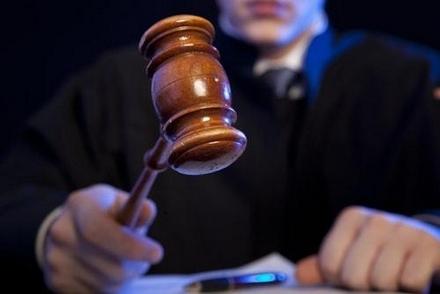TELEPHONES ANSWERED 24 HOURS A DAY
What Is a Mistrial – and What Happens Afterward?
 Those Illinois residents who have either had experience with the court system or who are casual followers of court cases know that the vast majority of criminal proceedings end in a verdict (either as the result of plea negotiations or a trial) wherein the court either finds the defendant guilty or not guilty of the charged offense. There are a few trials, however (most recently and notably, the criminal trial of comedian Bill Cosby), where the case does not end with a verdict. Instead, the court finds that a mistrial has occurred.
Those Illinois residents who have either had experience with the court system or who are casual followers of court cases know that the vast majority of criminal proceedings end in a verdict (either as the result of plea negotiations or a trial) wherein the court either finds the defendant guilty or not guilty of the charged offense. There are a few trials, however (most recently and notably, the criminal trial of comedian Bill Cosby), where the case does not end with a verdict. Instead, the court finds that a mistrial has occurred.
While it may seem like a trial that results in no verdict may be beneficial for you, the defendant charged with the crime, such a finding may not be as advantageous as may first appear.
When Is a Mistrial Declared in an Illinois Criminal Case?
Most mistrials occur because of one of two reasons: either the jury is unable to come to a unanimous decision concerning the guilt or innocence of the accused, or some fundamental error occurred during the trial that made it impossible for the defendant to receive a fair trial. Some examples of the latter might include:
- A witness has discussed the defendant’s criminal history in front of the jury;
- The prosecutor has made an improper argument during opening or closing statements; and/or
- Someone affiliated with either the prosecution and/or the defense has spoken with a member of the jury after the trial has commenced.
A mistrial will also be declared in an Illinois criminal case if it appears that a jury cannot reach a unanimous decision despite being afforded an adequate opportunity to do so and being encouraged to find common ground, if possible.
What Happens after a Mistrial Is Declared?
Either party may move the court for a mistrial if the party believes grounds for such a declaration exist. If the mistrial is due to a deadlocked jury (that is, a jury that cannot reach a unanimous verdict), then the prosecution is usually free to retry the defendant in a subsequent trial. Conversely, if the mistrial is due to some error or misconduct committed by the prosecution, a mistrial may be prohibited under the principle of double jeopardy.
What Can a Chicago Criminal Defense Attorney Do?
It is important that you are represented by a dedicated Chicago federal crimes attorney at each stage of your criminal case. This will help ensure that a mistrial is requested at appropriate times during your case and that you are protected from a subsequent retrial (if the mistrial comes as the result of prosecutorial misconduct). TheLaw Offices of Hal M. Garfinkel LLC, Chicago Criminal Defense Attorney are well-equipped to handle your criminal case, whether you are charged with a serious crime. We will help you determine the most appropriate course of action and ensure your rights as a defendant are respected. Call our firm or contact us online for professional legal representation in your federal criminal case today.
Source:
http://www.ilga.gov/legislation/ilcs/fulltext.asp?DocName=072500050K115-4




